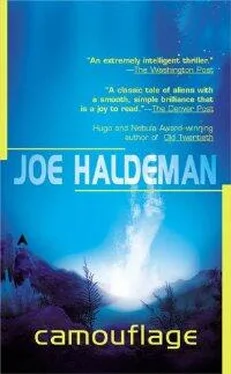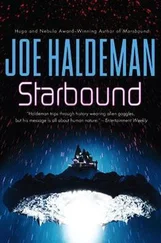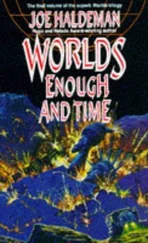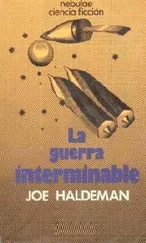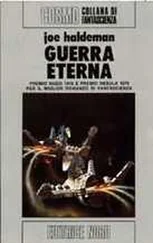He worked as a farmhand and soldier in Persia until 313, when the Edict of Milan made it safe to be a Christian. When he heard about that, he dropped his plow and walked to Italy, robbing people along the way, just enough to get by.
He didn’t like being so close to authority, so he went back to France and shuffled between Gallia and Germania for awhile, keeping an eye out for other immortals. Things got ugly in the 542 plague, so he made his way over to England as part of the Saxon invasion.
England seemed more congenial than the Continent, as the Roman empire collapsed into chaos, and the chameleon lived many lifetimes there, first as soldier and farmer, but eventually learning a variety of trades: blacksmith, cobbler, butcher.
In 1096, he went back to soldiering, following the Crusades down to Jerusalem and beyond. He fought on both sides for a century or so, and eventually, as an Arab, went back to Egypt and started walking south along the Nile.
Making himself dark and tall, he became a Masai warrior, and it was the best life he’d yet encountered: lots of women and great food and, in exchange for a battle every now and then, sleep late in the morning and hunt for game with spears, which he enjoyed. He did that for several hundred years, still keeping an eye out for Christ or another relative, probably white.
But the first white people who showed up were bearing guns and chains. He could have resisted and conveniently “died,” but he’d heard about the New World and was curious.
The ride over was about the worst thing he’d ever experienced— right up there with being boiled in oil or flayed to death. He lay in chains for weeks, stuffed in an airless hold with hundreds of others, many of whom died and lay rotting until someone got around to throwing them overboard.
It was a real chore. He thought about just bursting his chains, at night, and diving into the sea. He’d done that before, in Phoenicia, and swam dozens of leagues to shore. But Africa, after a few days under sail, would be months of swimming, so he’d just be trading one agony for another.
So he allowed himself to be carried to America, and in a way enjoyed being put up on the block—he was by far the healthiest specimen off the ship, since metabolism was irrelevant to him, other than as a source of pleasure. The Georgia man who bought him, though, was cruel. He liked to whip the new boys into submission, so at the first opportunity, the chameleon killed him, and then turned into a white man and walked away.
That was an amusing time. His version of English was almost a thousand years old, so he had to masquerade as an idiot while he learned how to communicate. He walked north, again robbing and murdering for sustenance, when he knew he wouldn’t be caught.
He kept moving north until he got to Boston, and settled in there for a few hundred years.
Apia, Samoa, 2020
Little green men,” Halliburton said, staring at Nesbitt. “You’ve been reading the tabloids.”
“The thing is at least a million years old,” Russell said.
Nesbitt nodded. “But it’s obviously a made thing.”
“Maybe not,” Russell said. “It could be the product of some exotic natural force.”
“Assume not, though. If some intelligence made it a million or some millions of years ago … well, we can’t say anything about their motivation, but if they’re like humans at all, there’s a good chance the thing is inhabited in some sense.”
“Still alive after a million years,” Halliburton said, stacking up two little egg salad sandwiches.
“We’re still alive after more than a million years.”
“Speak for yourself, spaceman.”
“I mean humanity, since we evolved from Homo erectus . We’ve been traveling through space in a closed environment, growing from a few individuals to seven billion.”
“It’s a point,” Russ said. “That thing is a closed environment, in spades.”
“Your eight billion little green men are going to be tiny green men.”
“Well, it’s probably not full of little hamsters in space suits,” Nesbitt said. “It may not be inhabited in the sense of carrying individuals. It could have some equivalent of sperm and eggs, or spores—or it could be basically information, like a von Neumann machine.”
“Oh, yeah. I sort of remember that,” Russ said.
“I don’t,” Halliburton said. “German?”
“Hungarian, I think. It’s an early nanotech idea. You send little spaceships out to various stars. Each one is a machine, programmed to seek out materials and build two duplicates of itself, which would take off for two other stars.”
“Yeah,” Russ said, “and after a few million years, every planet in the galaxy would have been visited by one of these machines. The fact that there obviously isn’t one on Earth is offered as proof that there’s no other space-faring life in this galaxy.”
“That’s a stretch.”
Russ shrugged. “Well, the galaxy is thousands of millions of years old. The logic is that the project would be relatively simple to set up, and then would take care of itself.”
“But you see the hole in that logic,” Nesbitt said.
“Sure,” Jack said. “I see where you’re going. The argument assumes we would know the machine was here.”
“It might well be hidden,” Nesbitt said, “hidden in a place where it wouldn’t be found except by other creatures with high technology.”
Jack rubbed the stubble on his chin. “You’re right there. No pearl diver’s gonna find that thing and bring it up.”
“And bringing it out of that environment into this one might be a signal that life on the planet has evolved sufficiently to initiate the next course of action.”
“Make contact with us.”
“Maybe. Or maybe eliminate us as rivals.” He looked at both of them in turn. “What if a creature like Hitler had started the project? Genghis Khan? And they were at least humans. There are plenty of animals who simplify their existence by eliminating their own kind who threaten their primacy. We ourselves have destroyed whole species— smallpox and malaria—for our health.”
“It’s far-fetched,” Halliburton said.
“But even if the probability was near zero, the stakes are so high that the problem should be addressed.”
“Hm.” Jack tapped his teacup with his spoon and the woman appeared. “Sun’s over the yardarm, Colleen.” She nodded and slipped away. “So how are your twelve people supposed to save humanity from alien invasion?”
“We discussed moving the whole operation to the lunar surface.”
“Holy cow,” Russ said.
“It would make the Apollo program look like a science fair project,” Nesbitt said. “No one has a booster that can orbit one-tenth that thing’s mass. And we couldn’t send it up piecemeal.”
Jack squinted, doing numbers. “I don’t think it could be done at all. Mass of the booster goes up with the square of the mass of the pay-load. Strength of materials. Goddamn thing’d collapse.”
“And you see the implications of that. Someone got that thing here from a lot farther away than the moon.”
“That’s still just an assumption,” Russ said, “and I still lean toward a natural explanation. It probably was formed here on Earth, by some exotic process.”
Nesbitt’s temper rose for the first time. “Pretty damned exotic! Three times as dense as plutonium—and that’s if it were the same stuff through and through! What if the goddamned thing’s hollow? What’s the shell made of?”
“Neutronium,” Russ said. “Degenerate matter. That’s my guess, if it’s hollow.”
“Baloney-um is what we called it in school,” Jack said. “Make up the properties first; find the element later.”
Читать дальше
